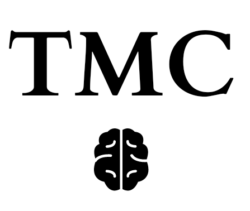Ant McPartlin, Mental Health – Lost in the Mental Jungle.
Get Me Out of Here!
Addiction & Ant McPartlin.
Who could possibly be unmoved by the sight of Ant McPartlin suffering this mental anguish? The latest video of him after the car crash and drink-driving charge shows the face of a man in torture.
By all accounts he has been suffering for several years following a knee operation which involved taking the opioid pain reliever, Tramadol (Ultram or ConZip). Tramadol can be highly addictive and is frequently cited as a gateway to more serious drug use. Getting off Tramadol can be difficult and often patients use alcohol to take the edge off withdrawal.
Everyone is unique, but we have a lot in common – various forms of therapy would not work if this were not the case. We can all see that Ant needs help…probably more than life-long friend, Dec, can give.
Responsibility
He has taken the first, crucial step by admitting he cannot deal with his addiction problems alone. Denial is a serious barrier to getting well. He is going back into rehab. It’s an expensive process – there are very few places available through the NHS – and the statistics show a rather poor success rate. Having been before, he’ll know what to expect.
The most valuable aspect of rehab is that it takes you completely out of the environment that is contributing to the problem – work pressures, or perhaps in his case, marital break-up. Self-medicating with alcohol is a clear sign that a person is trying to escape something.
For a month or more, rehab offers calm, peace and time to concentrate on recovery – drug and alcohol free.
It can be emotionally draining though – typically it’s a twelve-hour day of group therapy, some one-to-one treatment and an array of physical activities (tai-chi, yoga, walks, swimming). Group therapy might be difficult for Ant as he is so well-known and would probably be tempted to turn everything into an opportunity for a joke. The effectiveness of group therapy depends heavily on who is in the group – the therapist/counsellor rarely intervenes except to keep order.
Almost all rehab clinics base their programmes on the Twelve Steps of Alcoholics Anonymous and usually require patients to attend an AA meeting every day. AA offers free help, fellowship and willing listeners for many thousands of people who admit to alcohol dependency – but it does not suit everyone.
One of the main stumbling blocks is the concept of a Higher Power – it’s hard to grasp and too much like God for the non-believers…indeed there are many cult-like aspects to AA meetings. Having to find a ‘sponsor’ (a kind of mentor more advanced in recovery) can also be problematic for some. There is also some danger that AA becomes another addiction – recovery-ism rather than alcoholism – admittedly less life-threatening than booze.
Addiction
Addiction to any substance or behaviour is difficult to understand for anyone who has never been addicted. To the outsider, the attitude is often, ‘just get a grip!’, ‘snap out of it!’ or ‘why do you carry on drinking (injecting, gambling etc) when you know it’s killing you?’
Addiction has certain key features; it is the repetitive use of a substance or pattern of behaviour that gives short-term pleasure but causes longer term harm while its withdrawal or cessation causes pain. It’s more than just a habit, although it has many of features of habitual behaviour. In the case of alcohol there is actually a physiological dependency that results in craving and physical symptoms (shakes, sweating, fits, delirium etc) on withdrawal.
Alcohol itself is not addictive…the vast majority of drinkers do not become addicted. They can take it or leave it. There is, though, a percentage of any population that has a propensity or tendency to become addicted (this has also been shown in rats, mice, chimpanzees, elephants and even fruit flies). So clearly there is a complex genetic dimension to alcoholism. There most definitely is not an ‘alcoholic gene’ – but there is an inherited array of genes that interact with environmental factors to produce an epigenetic likelihood to display addictive behaviour.
To get better, Ant McPartlin, must really want to…H.O.W. – Honesty, Openness and Willingness. Rehab clinics do not work by themselves – the statistics point to a low level of success. Relapse rates are disappointingly high.
Anyone leaving rehab cannot simply return to the same life and people that led to the addiction. No one can keep doing the same things expecting a different outcome – thereby lies madness. Ant is using alcohol to escape from something. In the safety of the clinic, he needs to identify what that is and radically change it when he gets out.I’m an addict…Get Me Out of Here!

